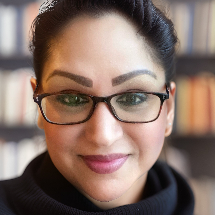Celebrities That Are Open About Their Mental Health





- Many celebrities have opened up about their experiences with mental health.
- They've discussed both their experiences and their recovery, reducing stigma.
- Celebrity stories can be a tool in normalizing the act of getting help.
Celebrities have the unique ability to reduce mental health stigma with just a quote or two about their experiences. Many well-known celebrities, like Emma Stone and Howie Mandel, exercise this ability to show 1) mental health issues don’t discriminate and 2) how they healed, and that recovery exists for everyone.
We’ll cover a few of the many celebrities changing the narratives about mental health and championing the freedom to heal openly.
Chrissy Teigen
Chrissy Teigen is a model and muse for her husband, singer John Legend. She’s also opened up to the public about her struggles with postpartum depression. Despite support from her family, fame, and fortune, she found herself unable to control or lessen her symptoms.
Chrissy spoke up about her struggles to show how “postpartum does not discriminate,” even though she “has a good life.”
Selena Gomez
Singer and actress Selena Gomez has experienced depression, anxiety, and anxiety attacks. She posits them as side effects of, and exacerbated by, her medical condition, lupus. Her mental health led her to take a break from performing and speak up about her struggles, saying, “I know I am not alone by sharing this, I hope others will be encouraged to address their own issues.”
Explore Depression Treatment Centers
Emma Stone
Actress Emma Stone began experiencing anxiety and overwhelming anxiety attacks at a young age. For three years, the debilitating attacks and constant anxiety of something going wrong plagued her. She’s since learned to use her “big emotions” as an acting superpower and credits acting for helping her manage the anxiety.
Dwayne Johnson
Dwayne Johnson, known more commonly as The Rock, is an actor and boxer. He’s tall and buff and stars in action movies, comedies, and children’s films. He’s also publicly acknowledged his struggles with mental health and the importance of maintaining mental well-being. By opening up about his struggles with depression, he hopes to give hope to others struggling and be the voice to tell them, “Hey, it’s gonna be OK. It’ll be OK.”
Lizzo
Body-positive rapper and singer Lizzo has spoken about her challenges with mental health, specifically after coming to fame. She notes, “My anxiety didn’t go away. My depression didn’t go away.”
She’s taken to social media to document her struggles, bring fans into her healing, and acknowledge her progress, recently saying she’s much happier now than before.
Lady Gaga
Lady Gaga experienced depression and anxiety at the sudden soar of her success as a musician and singer. She remembers little of this time, besides it being “traumatizing.” Now, she’s using resources like antidepressants to stabilize her mood and speaks out about her experience. She says,
“I openly admit to having battled depression and anxiety and I think a lot of people do. I think it’s better when we all say: ‘Cheers!’ And ‘fess up to it.”
Adele
Singer Adele has wowed listeners for years with her powerful voice and deep lyrics, but has also opened up to how mental health issues have impacted her career. She struggles with depression and experienced postpartum depression after the birth of her son. Talking about it was daunting at first, like it was for Chrissy Teigen, but she believes this openness can reduce stigma and embarrassment.
Miley Cyrus
Singer, actress, and former Disney star Miley Cyrus has opened up about her depression and how it affects her. She acknowledges it is out of her control and unrelated to her lifestyle and status as a superstar, but recognizes she can help others by talking about it. She says,
“There’s not much that I’m closed off about, and the universe gave me all that so I could help people feel like they don’t have to be something they’re not or feel like they have to fake happy.”
Jared Padalecki
Despite the fame and acceptance actor Jared Padelecki experienced from a young age, he still struggled with depression and suicidal thoughts—even with career success, good friendships, and a strong fanbase. He notes how mental illness doesn’t discriminate, saying,
“It’s not just people who can’t find a job, or can’t fit in society that struggle with depression sometimes.”
Lili Reinhart
Actress Lili Reinhart’s struggles with anxiety peaked as she tried to navigate the world of auditions, hoping for roles and her non-acting life. Her anxiety became so severe it impacted her ability to work and made her physically unwell. She’s also spoken on social media about body image and her experiences in the spotlight, helping others (especially young girls) realize it’s okay to struggle and it’s okay to ask for help.
Kristin Bell
Depression is different than sadness, which actress Kristin Bell highlights after struggling with the condition. She describes it as much more than needing a hug or just “shaking off” the feeling, but rather needing professional help to challenge her thoughts and feel like herself again.
By voicing her experience, she hopes to validate others’ feelings and help them get the care they need. She says, “It’s important for me to be candid about this so people in a similar situation can realize that they are not worthless and that they do have something to offer. We all do.”
Gwyneth Paltrow
Famous for her wellness brand Goop and her skills as an actress, Gwyneth Paltrow has also come out to share her struggles with postpartum depression and how her experience differed widely from common perceptions. Rather than crying everyday and being unable to take care of her baby, she instead felt like a “zombie, unable to access emotions.”
Gwyneth notes, “But there are different shades of it and depths of it, which is why I think it’s so important for women to talk about it. It was a trying time. I felt like a failure.”
Howie Mandel
Comedian and actor Howie Mandel judges America’s Got Talent and advocates for more accessible and affordable mental health treatment. He was diagnosed with obsessive compulsive disorder (OCD) in his 40s, though the condition began early in his childhood. Receiving a diagnosis and beginning treatment validated his experiences and relieved the weight of managing it on his own.
Since his diagnosis, Howie strives to reduce the stigma around mental health conditions, particularly OCD, and help others get the care he needed.
Prince Harry
British royal Prince Harry has talked publicly about the effects of losing his mother, Princess Diana, and navigating grief and trauma in the public eye. He spent decades holding in his emotions and presenting a positive front, which he says strained his relationships and work. Now, he’s more upfront with his emotions and less focused on masking them.
Lil Wayne
Rapper Lil Wayne revealed he struggled with depression and loneliness as a young kid. He also disclosed the bullet wound by his heart, once called an accident, was actually the product of a suicide attempt. Lil Wayne rose to fame not long after the attempt, which he said didn’t cure his depression or loneliness.
But he feels better now than ever before, and wants others to know they can get better. He says, “(I’m) hoping I can help anyone else out there who’s dealing with mental health problems by… being vulnerable. To me, I look at it by being brave and stepping up.”
Why Is Addressing Mental Health Important?
Stigma thrives in silence and misconceptions. Speaking on mental health issues shows what the experience is really like—and that people heal. Celebrities set an example when they share their struggles, championing for vulnerability and community and showing that mental health conditions typically break the stereotypes that lead to stigma.
Destigmatizing mental health conditions can encourage more people to seek help and view their mental wellbeing as a crucial aspect of their overall health. Both are vital components to recovery.
Find Treatment For Mental Health
Imagine your favorite actor or singer telling you they struggle with the same mental health condition you do. Discovering this connection point, and seeing how they’ve navigated the condition, can inspire hope and the willingness to get treatment. People heal in many different ways, and there’s a path for everyone.
You can find mental health treatment providers on Recovery.com and see pictures, reviews, insurance information, and more to find the best treatment for you.
Our Promise
How Is Recovery.com Different?
We believe everyone deserves access to accurate, unbiased information about mental health and recovery. That’s why we have a comprehensive set of treatment providers and don't charge for inclusion. Any center that meets our criteria can list for free. We do not and have never accepted fees for referring someone to a particular center. Providers who advertise with us must be verified by our Research Team and we clearly mark their status as advertisers.
Our goal is to help you choose the best path for your recovery. That begins with information you can trust.






